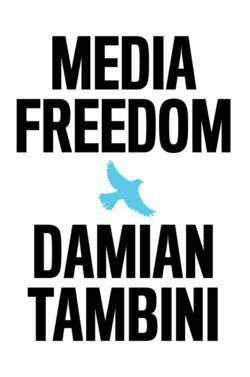Читать книгу Media Freedom - Damian Tambini - Страница 10
Is Media Freedom Absolute?
ОглавлениеFew would argue that media freedom is or should be absolute. Media are free, but within boundaries set by certain ‘conditions and responsibilities’, according to the ECHR. Even in the more permissive US, speech has been subject to restrictions, albeit only speech judged to risk causing a ‘clear and present danger’50 or ‘imminent lawless action’. Restraint of speech or media is always a risk in a democracy because it requires an institution to decide if media freedom is deserved, either in the setting of standards (by Parliaments, for example) or in the application of the law.51 The media have particular responsibilities due to their impact. As an extreme example, the finding of the International Criminal Tribunal for Rwanda that two FM radio stations had deliberately incited the genocide of the Tutsis in Rwanda in 1994 set out the principle that media freedom may be restricted, at least in cases of the worst excesses: the question is how to balance freedom with other rights and the rights of others and make sure that the regulator does not slide into censorship. The radio station Radio Milles Collines was dominant within one language group, and there was a dearth of alternative viewpoints available when it was used to issue specific instructions to groups of people to assemble, armed, in certain places and to coordinate actions. According to the judgement of the Tribunal: ‘The power of the media to create and destroy fundamental human values comes with great responsibility. Those who control such media are accountable for its consequences.’52 UN free expression standards and the case law of regional human rights courts and national courts such as the US Supreme Court have attempted to generate standards on what is a justified restriction of speech, and how to balance the competing rights of speakers, listeners, bystanders and the subjects of communications.53
